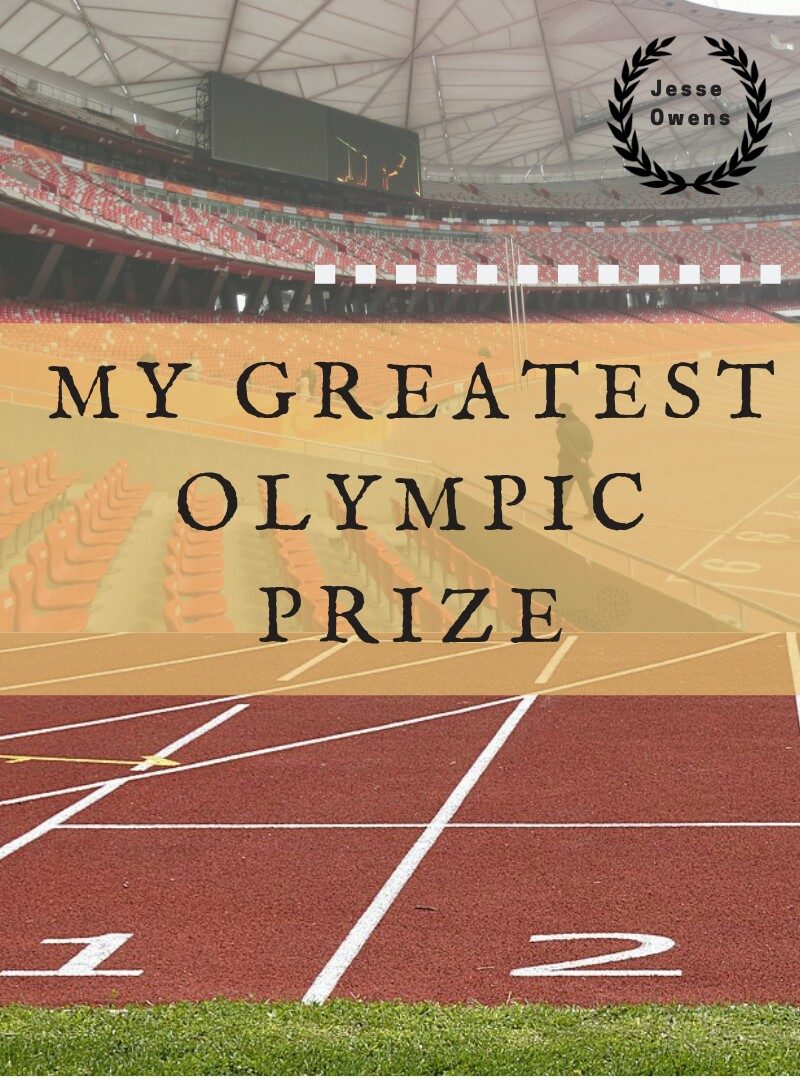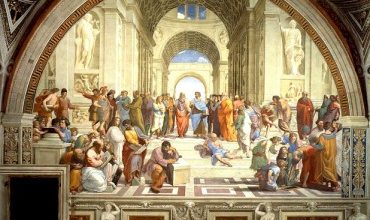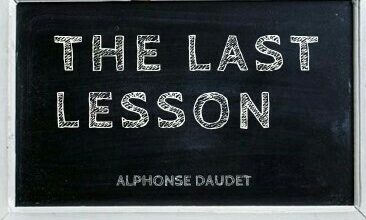
My Greatest Olympic Prize by Jesse Owens
“My Greatest Olympic Prize”, a personal account of Jesse Owens concerning the Summer Olympics of 1936 is a deeply engaging story about sportsmanship and the power of human connection which rises above the narrow constraints of race and nationality. It not only provides a glimpse of the political climate preceding WWII through a personal experience also gives us some very important lessons on race, friendship, sportsmanship, discipline and above all, the power of human touch.
Got No Time? Check out this Quick Revision by Litbug. Click on the link below.
My Greatest Olympic Prize | Summary
The personal account of Jesse Owens concerning the Summer Olympics of 1936 is a deeply engaging one. It not only provides a glimpse of the political climate preceding WWII through a personal experience also gives us some very important lessons on the theme of race, friendship, sportsmanship, discipline and above all, the power of human touch.
One of the most successful athletes in Olympic history, Jesse Owens was a person of color who had to overcome a great deal of racism throughout his life. His father was a sharecropper and his grandfather had been a ‘slave’. Consequently, he had to deal with generational discrimination based on color as is reflected in his account.
“It was the summer of 1936. The Olympic Games were being held in Berlin. Because Hitler childishly insisted that his performers were members of a ‘master race’, nationalistic feelings were at an all time high.”
Owens recounts that he had disciplined himself for six years and wasn’t worried about what Hitler had to say about his race. He had set a world record of 26ft 8-14 inches as a sophomore at Ohio State University and everybody expected him to win. However, as the Game approaches, he is astonished to see a German named Luz Long hit the pit at almost 20 feet on his practice leaps. Owens is later told that Hitler had kept Luz under wraps, hoping him to win
Painfully aware of the racial prejudices propagated by Nazi Germany, Hitler’s arrogant adherence to the ‘superiority’ of the Aryan Race and his own identity as a black athlete, Owen understands the significance of this race. He therefore angrily resolves to show Der Furher who was superior and who was not. However, as he hits the track for the trials, Owens leaps from several inches beyond the takeoff board and commits a foul. His anger takes over him.
“An angry athlete is an athlete who will make mistakes, as any coach will tell you. I was no exception.”
The foul is called out. It is a complete disaster. He becomes irritable and fouls even worse on his second jump:
“Did I come 3000 miles for this?” I thought bitterly “To fall out of trials “and make a fool of myself?”
During his bout of frustration, he feels a hand on his shoulder. Owens turns around to look into the friendly blue eyes of the tall German board jumper who offers him a firm handshake. Long asks Owens what the matter is with him, lifts up the spirits of his competitor and boosts his confidence. He seems to understand Owens’ frustration, empathizes with the situation of a fellow sportsman and tries his best to help him out. Long not only encourages Owens with words but also gives him a practical advice of drawing a line few inches in the back of the board so as to avoid committing a foul at take-off. Owens takes his advice. It works and he qualifies for the main event.
That night, Owens calls on Luz to thank him. The two talk for two hours and a strong bond of friendship is recognized by both:
“When I finally got up to leave, we both knew that a real friendship had been formed.”
The next day, Luz breaks his own record and pushes Owens to his peak performance. And when Owens goes on to set the Olympic record of 26ft 5.5/10 inches, Luz is by his side, congratulating him. He shakes Owens’ hand “despite the fact that Hitler glared at (them) from the stands not a hundred yards away”.
Owens is moved by the genuine appreciation displayed by the German athlete and realizes that Luz was the epitome of what Pierre De Coubertin, founder of modern Olympic Games had in mind when he said:
“The important thing in Olympic Games is not winning but taking part. The essential thing in life is not conquering but fighting well.”
The honest, frank and generous manner with which Luz came to Owens’ rescue and his public appreciation of his victory in front of Hitler led to the growth of real bond of friendship and camaraderie between the two competitors representing different countries and belonging to different races. It is this genuine friendship, born of equality and respect, which Owens considers to be his “Greatest Olympic Prize“. In the man’s own words:
“You can melt down all the gold medals and cups I have, and they couldn’t be a plating on the 24-carat friendship I felt for Luz Long at that moment.“
My Greatest Olympic Prize | Analysis
This remarkable account of Owens’ experience presents us a glimpse of the delicate intertwining of race, identity, sportsmanship, the individual and politics. It brings alive the political atmosphere preceding World War II and how it affected the lives and decisions of various individuals.
The 1936 Olympics wasn’t a regular Olympic event (even though it is the greatest sporting event around the world). The Olympic Games were being held in Nazi Germany that was vying for world dominance. Hitler viewed it as an opportunity to display the might of Germany and the extent of its soft power. The Berlin Olympics gave Nazi Germany a platform for propaganda to spread its hateful views of ‘racial superiority’ and Anti-Semitism. German Jews were banned form participating in the Games and Jews from many other countries were excluded as well. This was also the first Olympic Games to be televised and the question of race was at an all-time high.
It is in this context that Jesse, a black athlete from the U.S was competing. His concerns were shared by many athletes and he was fully aware of the repercussions of his victory or defeat. This is what the race meant to him:
“I guessed that if Long won, it would add some new support to the Nazi’s Aryan-superiority theory. After all, I am a Negro. “
The intertwining of the political and personal now comes to the surface. We begin to sense that an individual’s personal life isn’t completely divorced from the political atmosphere surrounding him/her. Owens’ desire to win the race didn’t just spring from personal motivation as an athlete. When he decides to show Hitler “who was superior and who was not” it is as much a political decision as a personal one.
We see that for sometime, Jesse allows the issue of race to to define his attitude towards the game because that was what Nazi politics was aiming at: to make people define themselves and others strictly in terms of race and nothing else. This race therefore isn’t an ordinary one for Owen’s. It is a race against racism.
This poisonous propaganda spread by Nazi Germany and it effects on others is neutralized by Luz Long, a Gerrman athlete who comes to Owens’ rescue when he see the fellow athlete in trouble. Long moves beyond the barrier of race, sees Owens as another human being struggling in one of the most important moments of his life and is able to reach out to Jesse Owens the person and not just Jesse Owens the competing athlete at their first interaction :
“Jesse Owens. I am Luz Long. I don’t think we’ve met”
“Glad to meet you” I said. Then, trying to hide my nervousness “How are you?”
“I’m fine. The question is: How are you?”
This question startles Owens and a very important conversation ensues:
“You should be able to qualify with your eyes closed.”
“Believe me, I know it” I told him and it felt good to say that to someone. (Emphasis added)
This human connection experienced by Owens is one of the most powerful feelings one can come across – to know that there is someone else, a completely different person, who understands you and the situation you are in is a rare gift a human being receives, often without the knowledge of the giver. We later see that it is this human connection built on equality and openness which allows Owens to overcome the smothering fumes of racism and think with a clear head.
The two athletes have a conversation for sometime in which the German, schooled in the Nazi movement and having a “lean muscular frame, clear blue eyes, blonde hair and strikingly handsome, chiseled face” calls out the Nazi delusion of Aryan supremacy : “…he didn’t believe in the Aryan supremacy business anymore than I did.”
Despite being surrounded by hate narratives and propaganda in Nazi Germany, Long seems to have maintained the rationale to think clearly. This is especially relevant in today’s age where we are constantly surrounded by unwanted prejudices of race, religion, gender etc , often propagated by the media and the powers that be.
Another important instance where we see the action of an individual overcoming the race narrative is when Luz Long is there beside Jesse, congratulating him on his victory. Not only does he acknowledge and appreciate Owen’s victory, he can also publicly display how fellow feeling towers over the ideas of nation and race and how sportsmanship can speak truth to power. He gives a firm congratulatory handshake to Owens in Hitler’s full view. This action by Luz isn’t just a gesture. It is a statement. Right on the face of the monster who considered race a reason enough to butcher
60 million Jews. And the fact that he chooses to make this statement sets him apart.
We are drilled into believing that racism is a thing of the past and that tackling it falls within the domain of legality and policy making. However, what Owens’ story affirms is the role of the individual and the power of the human touch which has the unlimited potential to change mindsets and transform lives. The race he ran was a race against racism in which there wasn’t one, but two winners.
My Greatest Olympic Prize : About the author
The hero of the 1936 Berlin Olympics and one of the greatest athletes to have graced the tracks, Jesse Owens was born James Cleveland on 14th September 1913. Born to a black family, Owens had a rough childhood and had to face a great deal of racism and economic instability. He had to financially support himself from a very young age by delivering groceries, working at shoe repair shops and doing various odd jobs. He was encouraged by his school track coach Charles Riley to pursue a career in athletics. Owens met his future wife Mini Ruth Solomon while at Junior High School when she was 13 and he was 15. They got married in 1935 and their happy marriage lasted until Owens’ death in 1980.
Though Owens was a successful athlete in the Ohio State University, he had to put up with a great deal of racism. As an African-American, he could stay at “blacks only” hotels and could dine at “blacks only” restaurant. He didn’t even receive scholarship for his athletic endeavours and had to support his education by working part time.
The 1936 Berlin Olympics proved to be a turning point in his life when he won four gold medals, one each in 100 meter and 200 meter dash, 400-meter relay and the long jump. His win was especially significant as he single-handedly destroyed Hitler’s absurd idea of the superiority of the Aryan race. A German athlete and Owens’ competitor Luz Long helped him overcome his mistakes and qualify for the Olympic race, thus displaying a magnanimous gesture of sportsmanship. The detailed account of the event is explored in the My Greatest Olympic Prize : Summary and Analysis section of Lit Guides by Litbug. The account captures the moment when sportsmanship and fellow feeling stood above the racial hatred spewed by Nazi Germany. However, an ugly truth which few wish to recognize (and which the account doesn’t cover) is that ironically, barely a year after Owens’ Olympic victory had become a symbolic defeat of racism; the living legend of the 1936 Olympic Games had become a victim of racism in his own country. The star of the 1936 Olympics wasn’t invited to the White House by the President Theodore Roosevelt. Only the white athletes were. In order to support himself, this Olympic champion had to work as a salesman and even ended up racing against horses to make money. The cognizance of these unsettling facts is also important while reading the text which ends on a happy note. It may help us remind ourselves time and again of how deep a problem racism is – not only in Nazi Germany but also in a supposedly free, democratic country, not only in the World War era but perhaps also in the digital age.



